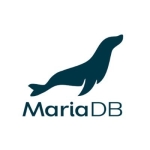
Database Manager at a tech company with 51-200 employees
A powerful Relational Database Management System that offers a large feature set
What is most valuable?
• Oracle ensures high level security by performing each transaction in isolation from others. The database management as well as user management of oracle is very effective
• Provides data consistency as well as data concurrency.
• Oracle database guarantees that the data returned by a single query is committed and consistent with respect to a single point in time.
• Supports very large size databases. So it is very beneficial for multinational organizations having billion of records.
• Oracle database ensures high level availability by providing solutions for fixing problems rapidly and minimize both planned and unplanned downtime. These solutions help enterprises maintain business continuity 24 hours a day, seven days a week.
What needs improvement?
• Due to its high cost, oracle is not the first priority for the organizations having budget constraints.
• A full time oracle Administration staff is always needed for the complex configuration of oracle.
• After installation, oracle drains lot of memory causing slow performance of system
• Oracle is not popular with open source code. MYSQL is a better option.
What other advice do I have?
Oracle is a powerful relational database management system that ensures high level security, consistency and data concurrency. Oracle architecture is split between the logical design and the physical design. This structure means that for large-scale distributed computing, the data location seems local and transparent to the user, allowing for a more modular physical structure that can be added to and altered without affecting the activity of the database, its data, or users. The sharing of resources in this way allows for very flexible data networks whose capacity can be adjusted up or down to suit demand, without degradation of service. It also allows for a robust system to be devised as a single point failure can’t bring down the whole database across a network.
Disclosure: I am a real user, and this review is based on my own experience and opinions.
Presenter at a consultancy
Beware: Need to monitor disk space
One thing that is annoying is the need to monitor the disk space available. In Oracle, the DBMS can monitor the utilization of a data file(s) but when the data files become full, the DBMS cannot just add a new data file and continue. Everything comes to a deadly halt. This approach makes no sense because the solution is just to add a new data file. So all that Oracle has to provide for are the parameters we want for all data files that are added "automagically" and we do not then run into such deadly issues.
Disclosure: I am a real user, and this review is based on my own experience and opinions.
Buyer's Guide
Oracle Database
March 2025
Learn what your peers think about Oracle Database. Get advice and tips from experienced pros sharing their opinions. Updated: March 2025.
848,716 professionals have used our research since 2012.
Program Director
A system you can trust to always work
Pros and Cons
- "The most valuable feature of Oracle Database is its stability - one can trust that the database is always working."
- "The initial setup was very complex - best case, it takes between four and six hours to set up."
What is our primary use case?
My primary use of this solution is to generate electronic documents.
What is most valuable?
The most valuable feature of Oracle Database is its stability - one can trust that the database is always working.
For how long have I used the solution?
I've been working with Oracle for over twenty years.
How was the initial setup?
The initial setup was very complex - best case, it takes between four and six hours to set up.
What other advice do I have?
Before implementing this product, make sure to research the environment and the necessary details to do the initial setup. I would rate this solution as nine out of ten.
Which deployment model are you using for this solution?
Private Cloud
If public cloud, private cloud, or hybrid cloud, which cloud provider do you use?
Other
Disclosure: I am a real user, and this review is based on my own experience and opinions.
Complete with features and functions suitable for complex business models
Pros and Cons
- "Oracle Database has many useful functions and features suitable for big programs and complex business models."
- "Oracle Database could be easier to use."
What is our primary use case?
We use this solution for our applications that deal with online trading and data analysis.
Currently, we have two customers using this solution.
What is most valuable?
Oracle Database has many useful functions and features suitable for big programs and complex business models.
What needs improvement?
Oracle Database could be easier to use.
For how long have I used the solution?
I have been using Oracle Database for five years.
What do I think about the stability of the solution?
Oracle Database is very stable.
What do I think about the scalability of the solution?
Oracle Database could be more scalable.
How are customer service and technical support?
The support is quite slow. It would be nice if they could respond faster.
What about the implementation team?
Deployment and maintenance are handled by an Oracle team. We pay them for this service.
What's my experience with pricing, setup cost, and licensing?
Our customers buy licenses from Oracle directly.
What other advice do I have?
I would recommend this solution to others. Overall, on a scale from one to ten, I would give Oracle Database a rating of eight.
Disclosure: My company has a business relationship with this vendor other than being a customer: Integrator
Product Manager at a tech services company with 51-200 employees
Good database and storage with a straightforward initial setup
Pros and Cons
- "Overall, from a technical perspective, the solution is very strong."
- "The database environment needs to be cheaper. By making it less expensive, Oracle would be more competitive with other database vendors."
What is our primary use case?
The solution is used mainly for the database.
What is most valuable?
The database is very good for holding our client's data.
Oracle has a very good RIC (Retail Integration Console). It gives good visibility.
Overall, from a technical perspective, the solution is very strong.
What needs improvement?
The licenses are quite expensive. They should work on making it more affordable for their customers and it needs to be simplified. The database environment needs to be cheaper. By making it less expensive, Oracle would be more competitive with other database vendors.
For how long have I used the solution?
We don't use the solution ourselves. We're an Oracle partner. We deploy the solution for our customers.
What do I think about the stability of the solution?
The stability of the solution is okay. I don't recall experiencing bugs or glitches. The solution hasn't crashed on me before. It's quite reliable. Stability is never an issue.
What do I think about the scalability of the solution?
We deployed the Oracle database on the HCI environment. We can expand and scale it easily. It just requires expanding the hardware itself.
How are customer service and technical support?
Typically, if a customer has a problem with the solution, we will look into the issue. We are the ones that maintain the solution for our clients.
However, technical support is good.
The only downside is that occasionally when we do need to communicate with the technical support team, we need to do so via one of our engineers. There's a bit of a language barrier, so a little translation is often needed.
How was the initial setup?
The initial setup isn't complex. It's quite straightforward. We do, however, have an expert in Oracle on staff, so that may make things easier for us.
Deployment took about one month from beginning to end.
What's my experience with pricing, setup cost, and licensing?
Pricing on the solution is higher. There are less expensive database options on the market.
What other advice do I have?
Our organization is partners with Oracle.
We mostly implement the solution on-premise because our customer is a governmental agency. The protocol is that they cannot store information on the cloud as it is far too sensitive.
I would advise other organizations to try it out. I'd recommend the solution.
I would rate the solution about eight out of ten. I would rate it higher if the licensing costs were not so high.
Which deployment model are you using for this solution?
On-premises
Disclosure: My company has a business relationship with this vendor other than being a customer: Partner
Master Software Designer at a tech vendor with 10,001+ employees
It's scalable and easy to figure out. Basic database knowledge should be sufficient.
What is most valuable?
The most valuable feature is the scalability of the database.
How has it helped my organization?
I see an increase in efficiency and reduction of man hours. There is faster response time on the queries and better performance on them.
What needs improvement?
I would like to see improvements with caching. I know there are some technologies within Oracle which could deliver more in-memory caching.
Which other solutions did I evaluate?
We looked into Microsoft SQL. We didn't like it nor see it as an enterprise-level solution. Oracle has more features in terms of administration.
What other advice do I have?
I would recommend this solution based on the track record, performance, and the support. It's really easy to figure out. I wouldn't think anybody needs any training on it. The basic knowledge of any database should be sufficient.
Disclosure: I am a real user, and this review is based on my own experience and opinions.
Usability is the biggest value.
Valuable Features:
Usability is the biggest value of Oracle Database.
Improvements to My Organization:
Compared to the previous version, this version has really improved in terms of the speed.
Room for Improvement:
We want Oracle to specify the differences between the two versions, the former version and the newer version and how it is linked.
Not only with one version differences but older versions as well since there are people who are using much older versions. If they are able to clarify what the difference is between the latest one and those older versions, and if they are able to offer us the easier method for the migration, then we would appreciate it.
Stability Issues:
Even if we encounter any problems, then there's a strong definition of how we are able to improve the situation and resolve the situation. We are able to do the backup beforehand by referring to those defined resolutions from the Oracle, and if we are able to have the two systems, then even if one fails, we are able to use the other one, so we are able to prevent problems.
Scalability Issues:
In comparison to other more simple structure databases, I consider the Oracle Database to be more scalable, as well as easiness to export from an external system.
Other Advice:
For people who are thinking about introducing Oracle Databases - they need to have knowledge beforehand about how to operate the databases in terms of security, and how to respond to the failures.
Disclosure: I am a real user, and this review is based on my own experience and opinions.
DBA at a consultancy with 1,001-5,000 employees
It's certainly been around for a long time. Stability is industry-leading.
Valuable Features
To say what is the most valuable feature of Oracle Database is tough because all of it is valuable. I can't necessarily describe a single, most important feature. It's certainly been around for a long time, it's incredibly scalable, and its stability is industry-leading. That makes is very reliable because we know it'll provide us with almost 100% uptime and it's flexible enough to meet our data needs. Oracle also has the best support in the industry.
Room for Improvement
The price is probably the main area for improvement. There are competitors, so if the people are looking for a cheap solution, they may pick another product that's more affordable for them.
Use of Solution
I've been using it for about 20 years.
Deployment Issues
We've never had any issues with deployment.
Stability Issues
Its stability is the best in the industry. It's the main reason we've stuck with it for so long.
Scalability Issues
It has the best scalability of any database.
Customer Service and Technical Support
Technical support is fine. They have a very strong support team, so really they can pretty much solve any problem that we've had.
Initial Setup
The initial setup is very easy and straightforward.
Other Advice
Oracle Database can be implemented at a small or large shop. They have a solution for every size.
Disclosure: I am a real user, and this review is based on my own experience and opinions.
Buyer's Guide
Download our free Oracle Database Report and get advice and tips from experienced pros
sharing their opinions.
Updated: March 2025
Product Categories
Relational Databases ToolsPopular Comparisons
SQL Server
Teradata
MariaDB
SAP HANA
IBM Db2 Database
Amazon Aurora
CockroachDB
LocalDB
IBM Informix
Citus Data
SAP Adaptive Server Enterprise
SAP SQL Anywhere
Oracle Multitenant
Buyer's Guide
Download our free Oracle Database Report and get advice and tips from experienced pros
sharing their opinions.
Quick Links
Learn More: Questions:
- Looking for recommendations for a service contract to de-identifiy patient data in databases.
- Which cloud-native database is the most similar to Oracle?
- How do you run Oracle Database at your organization and why?
- Do you know of any disadvantages of Oracle Database?
- What is the best use for Oracle Database?
- Which solution do you prefer: Microsoft SQL Server's enterprise edition or Oracle Database's enterprise edition?
- What exactly can one do with embedded Oracle Database?
- What are the main differences between Oracle Database and SQL Server?
- IBM Informix vs Oracle Database 12g - are these products really the same?
- Which product would you choose: CockroachDB or Oracle Database?













We have a script which monitors space left based on what the user_segments reports as used. We have also started to use bigfIle tablespaces.